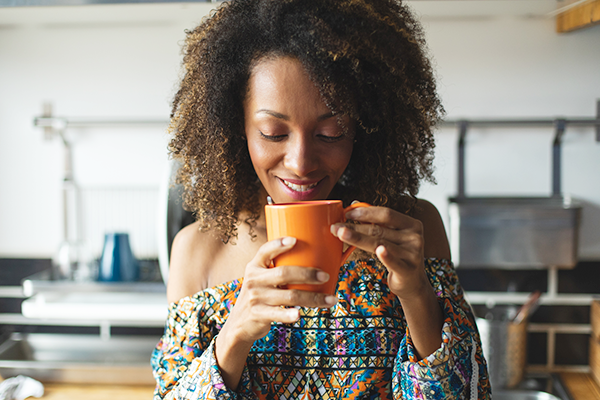In Shakespeare’s time, ordinary people believed that the body contained four essential “humors,” including blood and bile. Today, many of us would add to that list the coffee and tea that seem to run through our veins. Many of us can’t (or don’t want to) start the day without one of them. Both beers provide energy, along with a steady stream of studies proclaiming their health benefits.
But, in the battle between tea and coffee, is one “better” than the other? You may be surprised by the answer.
Caffeine in tea vs. coffee
Coffee has about twice as much caffeine as black tea, which has more caffeine than green tea. Here’s how the caffeine content of different types of coffee and tea stacks up:
The US Food and Drug Administration says that a caffeine intake of 400 mg per day It is generally not associated with negative and dangerous effects. That’s four cups of coffee, more or less, eight cups of black tea or almost 14 cups of green tea! When comparing green tea to coffee, consider how many more cups you can consume of the former.
Which has more benefits?
Let’s compare tea and coffee among the three benefits most associated with caffeinated beverages.
1. Energy

Both coffee and tea can increase energy. Because coffee generally contains more caffeine than tea, “it may have more pronounced effects on alertness,” says a registered dietitian and certified personal trainer. Conor McCrinkRD, CPT, MSc.
“Caffeine works by blocking adenosine receptors in the brain, allowing fewer adenosine molecules to attach, reducing feelings of tiredness,” he explains.
Once ingested, caffeine reaches peak levels in the bloodstream. within 30 minutes to an hour, and it takes about five hours for the body to eliminate half of it. (Keep this in mind when scheduling your last cup of coffee or tea.)
Paradoxically, although tea has less caffeine to help perk you up, it also provides an amino acid that can help you relax.
“Tea contains L-theanine, which may act synergistically with caffeine to promote relaxation with more subtle and sustained effects on alertness,” says McCrink.
2. Antioxidants
Coffee and tea are tied when it comes to antioxidant support. According Cristina SvecMA, RDN, CLE, a registered dietitian nutritionist, both are “loaded with phytochemicals” (plant chemicals) like polyphenols and flavonoids.
“They act as antioxidants,” he explains, so they provide all kinds of health benefits.
3. Weight loss
Drinking coffee, tea, or a caffeinated supplement before exercising can help you have more energy to exercise longer. Exercise and a proper diet are necessary to achieve and maintain weight loss and muscle definition.
On their own, coffee and tea contain no calories, making them a great choice no matter your goals. But be careful: the “coffee” or “tea” drink you order may be loaded with sugar and milk (and calories). So if you’re drinking anything other than coffee and tea, check the ingredients list!
So which is healthier?

The tea vs. coffee battle will end in a draw! Both drinks have benefits when consumed in moderation, as long as they don’t disrupt sleep or add excessive amounts of sugary calories.
“You’ll find that different people have different opinions on this topic, mainly based on their preference between tea and coffee,” says Svec. “As a dietician and coffee drinker, I try to be unbiased. “Both coffee and tea can be healthy as long as they are not loaded with sugar and/or cream.”
Coffee can definitely be more acidic than tea, so keep that in mind if you have a sensitive stomach. But the bottom line is that tea versus coffee is not an either/or choice!








